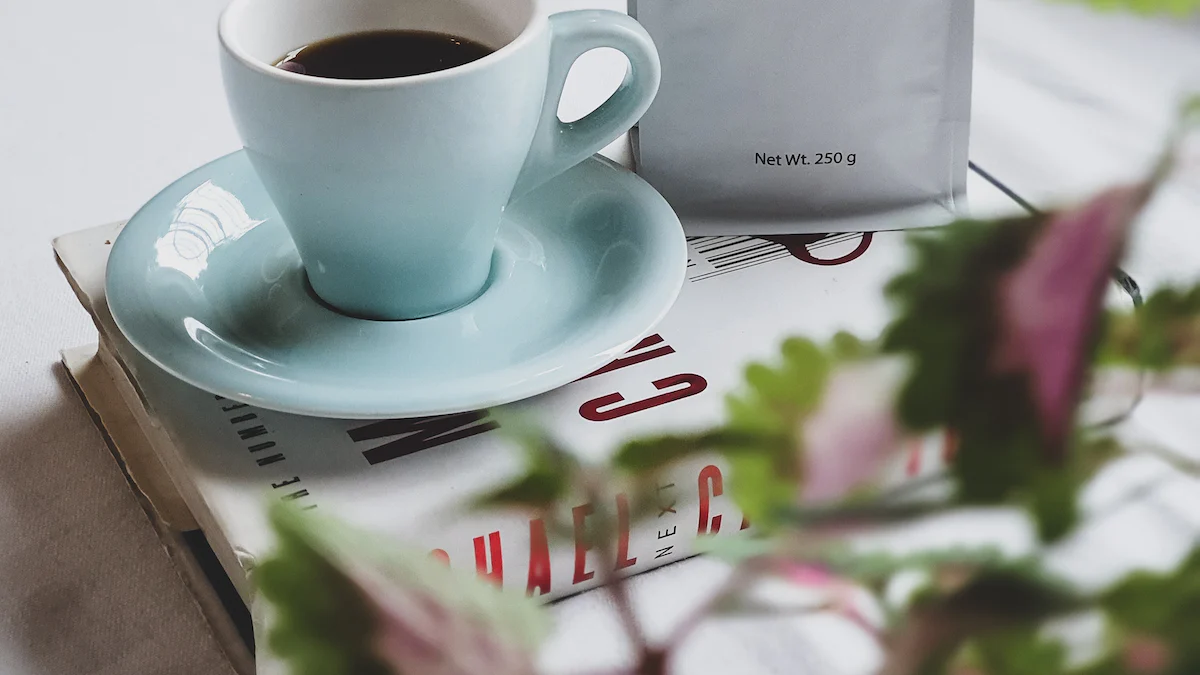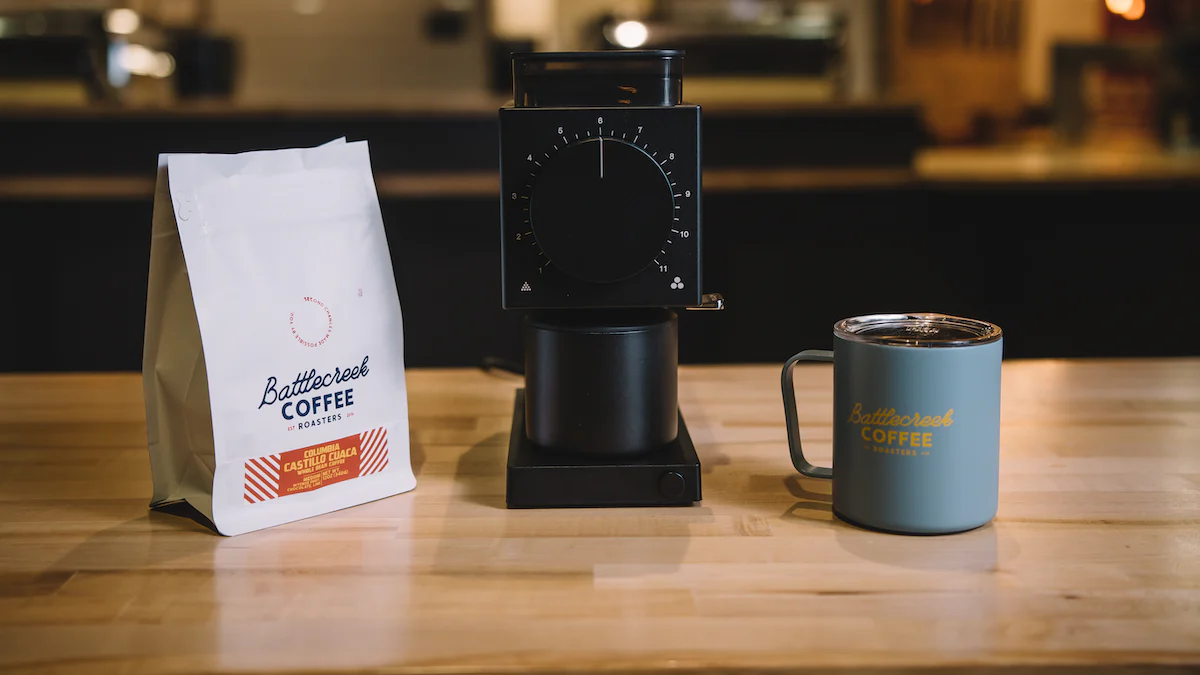FTC/ASA Disclosure: Some links in this post are affiliate links. At no additional cost to you, I will earn commission if you purchase via my links. Thank you in advance for your support! 🙏 It means a lot to me. ❤️
Caffeine is a widely consumed substance that is found in various beverages and foods, most commonly in coffee. It is known for its stimulating effects on the central nervous system, which can increase alertness and improve focus. However, for some individuals, caffeine can also trigger or exacerbate feelings of anxiety. Understanding the relationship between caffeine and anxiety is important for those who experience anxiety symptoms, as it can help them make informed decisions about their caffeine consumption and find strategies to manage their anxiety effectively.
Understanding the effects of caffeine on the body
Caffeine works by blocking the action of adenosine, a neurotransmitter that promotes sleep and relaxation. By blocking adenosine receptors in the brain, caffeine increases neural activity and stimulates the release of other neurotransmitters like dopamine and norepinephrine. This leads to increased alertness and a temporary boost in energy levels.
In addition to its effects on the brain, caffeine also has physical effects on the body. It can increase heart rate, blood pressure, and respiration rate. These physiological changes are part of the body’s natural stress response, which can contribute to feelings of anxiety or heightened arousal.
The science behind anxiety and its symptoms
Anxiety is a normal response to stress or perceived threats. It is characterized by feelings of unease, worry, or fear that can be accompanied by physical symptoms such as rapid heartbeat, sweating, trembling, and shortness of breath.
There are several factors that can contribute to the development of anxiety disorders. These include genetic predisposition, environmental factors, brain chemistry imbalances, and traumatic experiences. Anxiety disorders are among the most common mental health conditions worldwide and can significantly impact an individual’s quality of life.
Coffee consumption and its impact on anxiety levels
Several studies have explored the relationship between coffee consumption and anxiety levels. While some research suggests that caffeine intake may increase anxiety symptoms in susceptible individuals, the results are not consistent across all studies.
One study published in the Journal of Anxiety Disorders found that individuals with panic disorder were more likely to experience increased anxiety symptoms after consuming caffeine compared to those without the disorder. Another study published in the Journal of Psychopharmacology found that caffeine intake was associated with increased anxiety and panic attacks in individuals with social anxiety disorder.
However, it is important to note that not all individuals will experience increased anxiety symptoms after consuming caffeine. Some people may be more sensitive to the effects of caffeine, while others may be able to tolerate higher levels without experiencing negative effects on their anxiety levels.
How much coffee is too much?
The recommended daily caffeine intake varies depending on factors such as age, sex, and individual sensitivity. The U.S. Food and Drug Administration (FDA) suggests that most healthy adults can consume up to 400 milligrams of caffeine per day, which is roughly equivalent to four cups of coffee. However, it is important to note that individual tolerance to caffeine can vary greatly.
Factors that can affect an individual’s tolerance to caffeine include genetics, body weight, metabolism, and overall health. Some individuals may be more sensitive to the effects of caffeine and may need to limit their intake to avoid triggering or exacerbating anxiety symptoms.
The link between caffeine and sleep disturbances
Caffeine can also have a significant impact on sleep quality, which can indirectly affect anxiety levels. Caffeine has a half-life of about 5-6 hours, which means that it takes this amount of time for half of the caffeine consumed to be eliminated from the body. However, individual metabolism rates can vary, and some people may take longer to metabolize caffeine.
Consuming caffeine too close to bedtime can interfere with sleep onset and reduce overall sleep quality. This can lead to feelings of fatigue, irritability, and increased anxiety during the day. It is recommended to avoid consuming caffeine at least 6 hours before bedtime to minimize its impact on sleep.
Alternative drinks to coffee for those with anxiety
For individuals who experience anxiety symptoms after consuming coffee, there are several alternative drinks that can be enjoyed without the stimulating effects of caffeine. Non-caffeinated beverages such as herbal teas, decaffeinated coffee, and fruit-infused water can provide a soothing and calming effect without triggering anxiety symptoms.
Herbal teas, in particular, have been used for centuries for their calming properties. Chamomile tea, in particular, is known for its relaxing effects and can help promote better sleep quality. Other herbal teas such as lavender, lemon balm, and passionflower can also have anxiety-reducing properties.
Coping mechanisms for managing coffee-induced anxiety
For individuals who still want to enjoy their daily cup of coffee but experience anxiety symptoms as a result, there are several coping mechanisms that can be helpful in managing coffee-induced anxiety.
Breathing exercises can be an effective way to reduce anxiety symptoms in the moment. Deep breathing exercises, such as diaphragmatic breathing or box breathing, can help activate the body’s relaxation response and counteract the stimulating effects of caffeine.
Mindfulness techniques, such as meditation or guided imagery, can also be helpful in managing anxiety symptoms. These practices can help individuals become more aware of their thoughts and emotions and develop a sense of calm and relaxation.
Exercise is another effective strategy for managing anxiety symptoms. Engaging in regular physical activity can help reduce stress levels, improve mood, and promote better sleep quality. It is important to find an exercise routine that is enjoyable and sustainable to ensure long-term benefits.
The role of genetics in coffee sensitivity and anxiety
Genetics can play a role in an individual’s sensitivity to caffeine and their predisposition to anxiety. The enzyme responsible for metabolizing caffeine, known as cytochrome P450 1A2 (CYP1A2), is encoded by a gene that can vary between individuals. Some people may have a genetic variant that results in slower caffeine metabolism, leading to increased sensitivity to its effects.
In addition to caffeine metabolism, certain genetic factors can also contribute to an individual’s susceptibility to anxiety. Variations in genes involved in the regulation of neurotransmitters such as serotonin and dopamine, as well as genes related to the stress response, have been associated with an increased risk of anxiety disorders.
The benefits of reducing or eliminating coffee intake
Reducing or eliminating coffee intake can have several benefits for individuals who experience anxiety symptoms. One of the most significant benefits is improved sleep quality. By avoiding caffeine close to bedtime, individuals can promote better sleep onset and reduce the likelihood of sleep disturbances.
Reducing caffeine intake can also lead to a reduction in anxiety symptoms. While caffeine may provide a temporary boost in energy and alertness, it can also contribute to feelings of restlessness, irritability, and increased heart rate. By minimizing caffeine consumption, individuals may experience a decrease in these symptoms and an overall improvement in their sense of well-being.
In addition to these benefits, reducing or eliminating coffee intake can also have positive effects on other aspects of health. Excessive caffeine consumption has been associated with digestive issues, increased heart rate, and dehydration. By cutting back on coffee, individuals can reduce their risk of these health problems and promote overall wellness.
Tips for finding a balanced approach to coffee consumption and anxiety management
Finding a balanced approach to coffee consumption and anxiety management is essential for individuals who want to enjoy their daily cup of coffee without experiencing negative effects on their anxiety levels. Here are some tips to help achieve this balance:
1. Gradually reduce caffeine intake: Instead of quitting coffee cold turkey, consider gradually reducing your caffeine intake over time. This can help minimize withdrawal symptoms and make the transition easier.
2. Find alternative coping mechanisms: Experiment with different coping mechanisms to manage anxiety symptoms. This can include breathing exercises, mindfulness techniques, or engaging in physical activity. Find what works best for you and incorporate it into your daily routine.
3. Seek professional help if necessary: If anxiety symptoms persist or significantly impact your daily life, it may be helpful to seek professional help. A mental health professional can provide guidance and support in managing anxiety and developing effective coping strategies.
Understanding the relationship between caffeine and anxiety is crucial for individuals who experience anxiety symptoms. While caffeine can provide a temporary boost in energy and alertness, it can also trigger or exacerbate feelings of anxiety in some individuals. By finding a personalized approach to managing caffeine intake and anxiety, individuals can make informed decisions about their coffee consumption and find strategies to effectively manage their anxiety symptoms. It is important to remember that everyone’s tolerance to caffeine and response to anxiety management strategies may vary, so finding what works best for each individual is key.
If you’re a coffee lover, you may have wondered if your daily cup of joe could be contributing to feelings of anxiety. According to a recent article on BrewHilda.com, titled “How Caffeine Affects the Body,” it explores the relationship between coffee consumption and anxiety levels. The article dives into the science behind caffeine’s impact on our nervous system and discusses how it can potentially trigger or exacerbate anxiety symptoms. To learn more about this topic, check out the article here.
Brewhilda.com is a participant in the Amazon Services LLC Associates Program, an affiliate advertising program designed to provide a means for sites to earn advertising fees by advertising and linking to Amazon.com.










